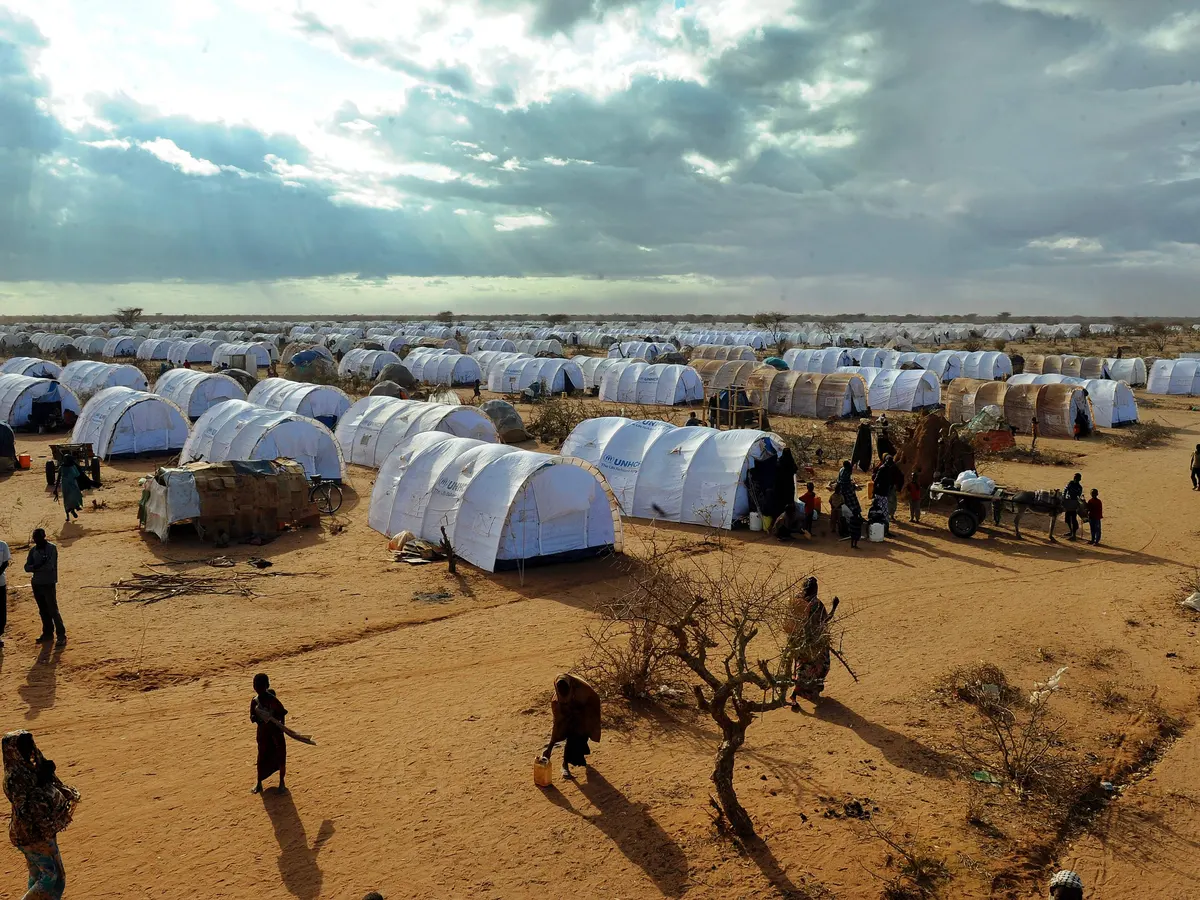Kenya’s refugee integration plan criticised over poor public involvement

Kenya’s ambitious plan to transform refugee camps into integrated, self-reliant settlements is facing criticism over poor public participation and a lack of community involvement, despite the government having held over 75 forums.
During a meeting on Thursday, the National Assembly’s Departmental Committee on Regional Development raised concerns that many refugees and host communities feel excluded from decision-making processes under the government’s Shirika Plan.
The Principal Secretary for Immigration and Citizen Services, Dr Belio Kipsang, outlined the government’s multi-sectoral efforts since the launch of the Shirika Plan in March 2025.
The plan aims to transition the camps in Kakuma and Dadaab into integrated settlements, in line with global commitments and the Refugees Act, 2021. It is structured in phases from 2025 to 2036, focusing on improving service delivery, institutional capacity, and socioeconomic inclusion.
However, Committee Chairperson Peter Lochakapong said: “We conducted oversight visits to both Kakuma and Dadaab refugee camps to assess the situation on the ground. Following engagements with members of the host communities and refugees, we confirmed that the concerns raised were indeed valid.”
He emphasised that public sensitisation remained inadequate and that many stakeholders felt marginalised.
Lochakapong also raised concerns about refugee data being primarily managed by foreign organisations, with minimal government oversight.
“We discovered that refugee affairs in Kenya are almost entirely handled by UNHCR, with very little government presence. This is a serious issue. We need the Principal Secretary to explain how the government intends to reclaim oversight in managing refugee matters. This is a ticking time bomb, particularly in terms of national security,” he said.
Other committee members expressed concern over environmental degradation linked to refugee settlements and the uneven distribution of integration benefits.
Dr Kipsang explained that the plan is intended to improve infrastructure, including schools and health centres, but noted that reduced donor funding had impacted food rations and resettlement programmes.
He urged the committee to consider increasing domestic funding, stating: “The Shirika Plan is not just about refugees; it is about ensuring no community is left behind. It is a blueprint for shared prosperity, resilience, and inclusive national development.”
During a meeting on Thursday, the National Assembly’s Departmental Committee on Regional Development raised concerns that many refugees and host communities feel excluded from decision-making processes under the government’s Shirika Plan.
The Principal Secretary for Immigration and Citizen Services, Dr Belio Kipsang, outlined the government’s multi-sectoral efforts since the launch of the Shirika Plan in March 2025.
The plan aims to transition the camps in Kakuma and Dadaab into integrated settlements, in line with global commitments and the Refugees Act, 2021. It is structured in phases from 2025 to 2036, focusing on improving service delivery, institutional capacity, and socioeconomic inclusion.
However, Committee Chairperson Peter Lochakapong said: “We conducted oversight visits to both Kakuma and Dadaab refugee camps to assess the situation on the ground. Following engagements with members of the host communities and refugees, we confirmed that the concerns raised were indeed valid.”
He emphasised that public sensitisation remained inadequate and that many stakeholders felt marginalised.
Lochakapong also raised concerns about refugee data being primarily managed by foreign organisations, with minimal government oversight.
“We discovered that refugee affairs in Kenya are almost entirely handled by UNHCR, with very little government presence. This is a serious issue. We need the Principal Secretary to explain how the government intends to reclaim oversight in managing refugee matters. This is a ticking time bomb, particularly in terms of national security,” he said.
Other committee members expressed concern over environmental degradation linked to refugee settlements and the uneven distribution of integration benefits.
Dr Kipsang explained that the plan is intended to improve infrastructure, including schools and health centres, but noted that reduced donor funding had impacted food rations and resettlement programmes.
He urged the committee to consider increasing domestic funding, stating: “The Shirika Plan is not just about refugees; it is about ensuring no community is left behind. It is a blueprint for shared prosperity, resilience, and inclusive national development.”
Shirika plan
Belio Kipsang
refugees in kenya
refugee camps
Let’s Connect
We’re here to listen, support, and engage with you.
Whether it’s feedback, a request, or collaboration — Hon. Jalang’os team welcomes your message.
Office Address
Langata Constituency Office, Nairobi
Call
+254 722 400 737
“Leadership is not about position — it’s about purpose, people, and progress.”